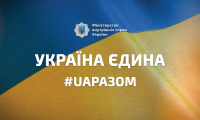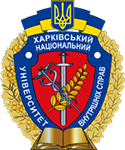Dialogue Training Session on 'Conflict-Free Communication. Advantages and Challenges of International Projects and Youth Exchanges'
On 22 May 2025, Inna Rushkova, a teacher of the Department of Management, Sciences, Humanities and Fundamental Disciplines conducted a dialogue training session on the topic ‘Conflict-Free Communication. Advantages and Challenges of International Projects and Youth Exchanges.’ The event brought together higher education students from six study groups in various specialities. The event was attended by: Nataliia Kitsel, Research Associate of the Scientific Activity Organisation Department; Viktor Panchenko, Teacher of the Department of Electronic Communications, Radio Engineering and Avionics; from the Department of Management, Social Sciences and Humanities, and Fundamental Disciplines: Head Maryna Kiriukhina, Teacher Maryna Puzyr; from the International Relations and Interuniversity Work Group: Specialist Svitlana Stelmakh and Translator Yullia Onyshchenko.
During the meeting, participants learned about effective communication techniques and how to change their communication habits to be more productive. Special attention was paid to a virtual trip to the Erasmus+ project in Poland, where students could see the real experience of international cooperation.
The interactive part included resolving a hypothetical conflict situation using the ‘perception ladder,’ which allowed participants to master the skills of resolving misunderstandings in practice.
During group work, students identified the key benefits of participating in international programmes such as:
Personal development: expanding your worldview, developing soft skills, increasing independence, and overcoming fears of the unknown.
Professional opportunities: gaining international experience, learning foreign languages, networking, obtaining additional educational credits, and internship opportunities.
Academic advantages: studying at foreign universities, comparing educational systems, unique courses, and international certificates.
Participants learned in detail about the information resources for searching for international projects, including specialised platforms and Telegram channels. Each participant received a specific action plan for participating in future exchange programmes.
The event ended with a Mentimeter survey, which showed a high level of student interest in international cooperation and readiness for new challenges.
The event was organised by the Educational Process Organisation Department, the Department of Management, Social Sciences, Humanities and Fundamental Disciplines, and the International Relations and Interuniversity Work Group.








